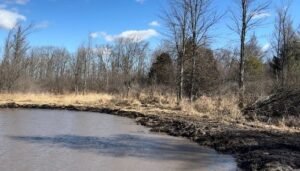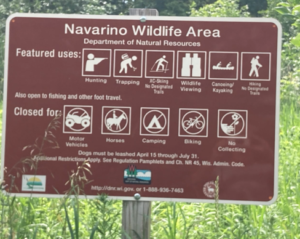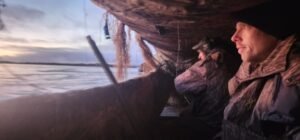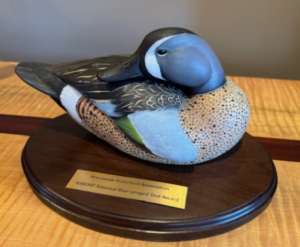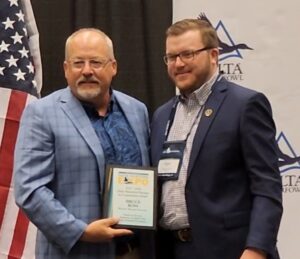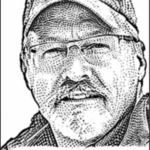 By Bruce Ross, Executive Director bross@wisducks.org
By Bruce Ross, Executive Director bross@wisducks.org
This article originally appeared in Wisconsin Waterfowl Association’s November, 2024 Newsletter edition.
Three weeks ago, you got an email from us, asking that you reach out to the bi-partisan legislators sitting on the Sandhill Crane study committee that are considering whether a hunt is appropriate here in Wisconsin. Over 2,000 of you responded!!!
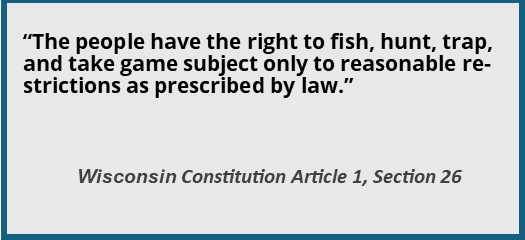 An additional 1000 or more emails came in from our partners like Delta Waterfowl, Safari Club International, Back Country Hunters and Anglers, and Wisconsin Wildlife Federation. (By the way, this volume of emails would not have been possible without technical support from our friends at Delta Waterfowl.)
An additional 1000 or more emails came in from our partners like Delta Waterfowl, Safari Club International, Back Country Hunters and Anglers, and Wisconsin Wildlife Federation. (By the way, this volume of emails would not have been possible without technical support from our friends at Delta Waterfowl.)
Your emails flooded the inboxes of those legislators to let them know that you’re counting on them to follow the science, apply common sense, and uphold the state’s constitutional right to hunt by concluding that a sustainable and ethical sandhill crane hunt is justified. This number of emails far, far, far surpasses the number of communications these offices routinely receive, on any topic. Well done – your voice is heard.
Even if you never intend to hunt sandhill cranes, this is a hunting rights issue.
Hunters make up less than 10% of the Wisconsin population – a small minority – but carry a lion’s share of the conservation work and funding that have led to the recovery of migratory species like the crane.
Today’s hunting heritage includes the expectation that hunters “leave it better than they found it.” And we do.
This obligation of shouldering a significant conservation burden is ours for life because we harvest a public resource. And with that obligation comes another: to protect this hunting heritage for the next generation. With our small numbers, we must continue to earn our conservation credibility every day with those who simply don’t understand today’s hunter conservationists… or our voice will be weakened and eventually stilled.
It is this hunting ethic that allowed Wisconsin’s right to hunt constitutional amendment to pass overwhelmingly in 2003 – over 82% of voters approved it. While this certainly does not give hunters a free pass to shoot anything in sight, it’s a pretty high threshold for anti-hunters to overcome. Especially for a game bird like the crane that is hunted in 18 other states, stands at twice its maximum population target, and whose numbers create significant agricultural damage. But that constitutional right doesn’t mean a thing if we are not defending it when it is challenged.
So when an organization trots out a poll (that they sponsored, designed, tabulated, and reported on) that says less than a majority of state residents support a crane hunt, we need to provide a context to those who don’t share our hunting ethic. That what I hoped to do when I presented to the crane legislative study group last month.
I am personally sick that some non-hunting conservation groups are lined up against us on this crane hunting issue. I reached out to their leaders several years ago to try to avoid this circular firing squad that only hurts our cooperation on bone fide conservation issues.
Especially since this is NOT a bird conservation issue. Those groups stood by for over a decade while 10,000+ cranes were killed and left to rot in agricultural fields – none stepped forward to help fund a seed treatment that could have saved many of those birds. And despite these wasted birds and those that are hunted elsewhere, the population continued its historic rebound.
But now, let a sandhill crane hunt even be considered – with an annual harvest that would fall below the level of these depredation kills – and birding groups trip over themselves to protest. While no man can know another’s motivations, it’s not reasonable to believe bird conservation is at the heart of that protest.
I’m proud to be a hunter conservationist and helping to lead a coalition of like-minded organizations such as the Wisconsin Wildlife Federation, Delta Waterfowl, Safari Club International, and Backcountry Hunters and Anglers on this issue. It will be a long road, but with your support, WWA will stay with it… respecting the science, following the data, and trusting the federal migratory bird managers who have allowed the crane to make its remarkable comeback. And defending the constitutional respect your hunting heritage and conservation efforts have earned.
Thanks to you for your support, and special thanks to those who followed through on our invitation to reach out to the legislators. As a mentor once told me, “if you don’t use your voice, you might as well not have one.”
 By Bruce Ross, Executive Director bross@wisducks.org
By Bruce Ross, Executive Director bross@wisducks.org